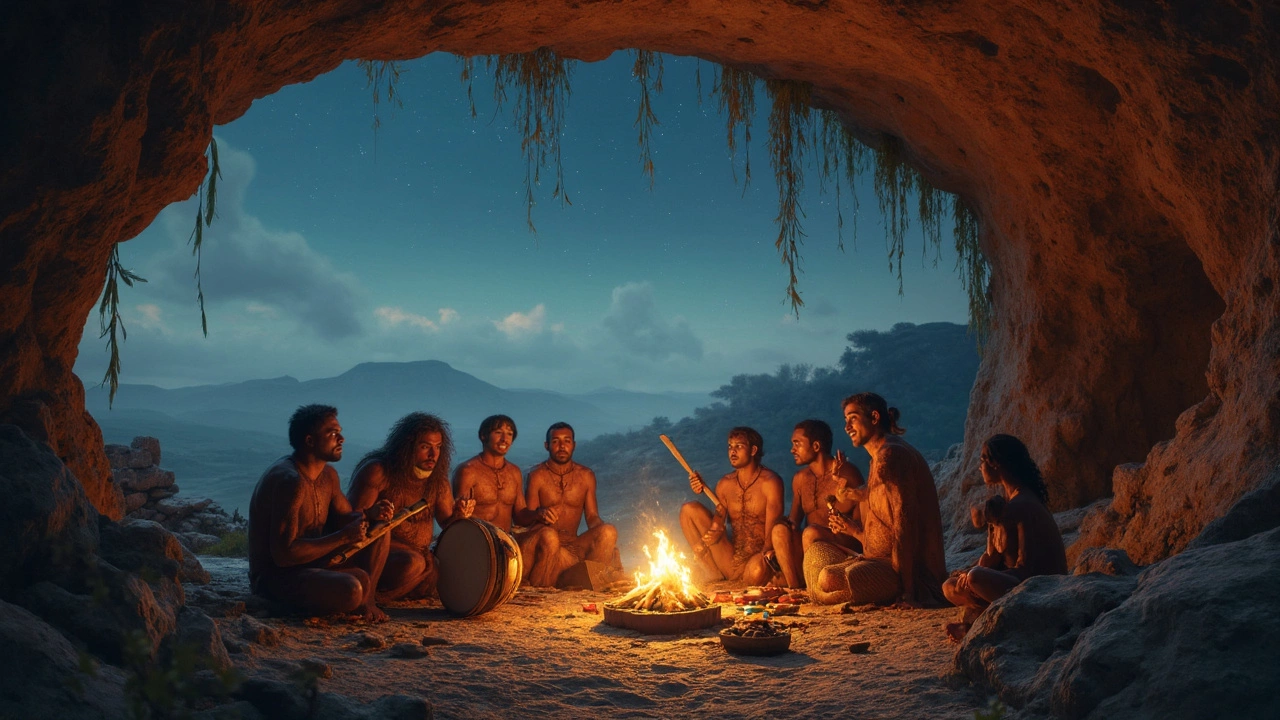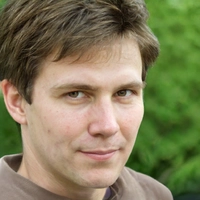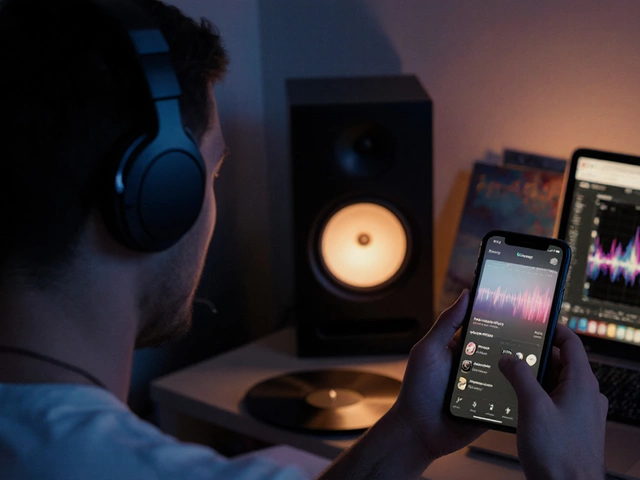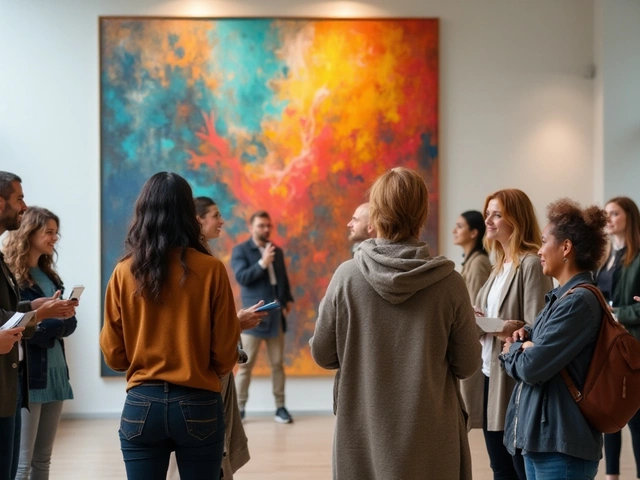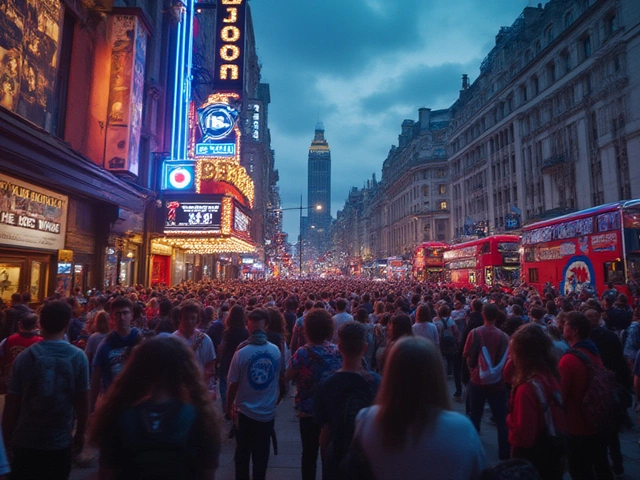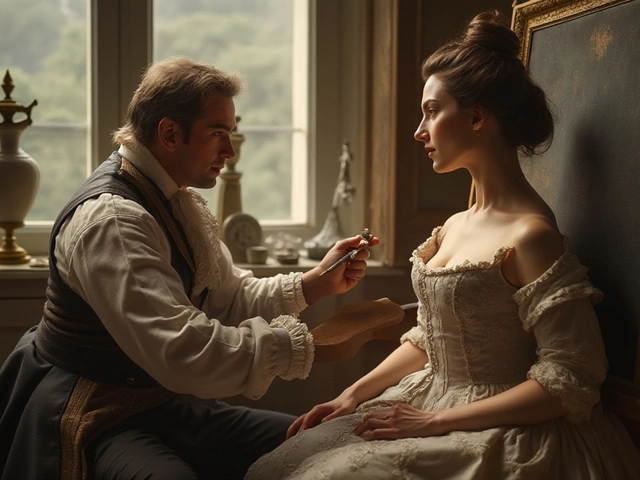Ever pondered why humans started making music in the first place? It seems like an art form that’s always been there, echoing through caves and concert halls alike. But the real spark for music may surprise you. It was probably more about survival than symphonies at first. Picture this: early humans using music as a tool to connect, to communicate when words were clumsy or nonexistent. Rhythm and melody became their universal language, a bridge across chasms of misunderstanding.
Music wasn't just a pastime; it was a lifeline. Imagine tribes gathering around fires, crafting a shared sense of identity and belonging through the beats of their makeshift drums. This collective performance wasn't just entertainment—it was a social glue that kept communities together. Music’s magic lies in its ability to unify, aligning hearts to a common rhythm. That's something our ancestors instinctively understood.
- The Birth of Music: A Tool for Early Humans
- Music as Social Glue
- The Healing Power of Music
- Music in Rituals and Traditions
- Leveraging Music in Today’s World
The Birth of Music: A Tool for Early Humans
Alright, let’s take a journey back in time, way before Spotify playlists or radio hits. Imagine our early ancestors trying to make sense of the world, relying on their instincts and the sounds around them. Without a shadow of a doubt, music invention history takes a fascinating twist here. Instead of seeing it solely as a form of entertainment, think of music as a survival tool.
In prehistoric times, communication was tricky without language as we know it. But here’s the kicker—humans, being the creative problem solvers they are, stumbled upon music as a solution. They used rhythm and sound as a way to convey messages, express emotions, and even warn each other of dangers. Picture a group mimicking the sounds of nature or using repetitive beats to signal safety or danger. It wasn't about creating catchy tunes but about getting a message across.
We can't ignore the importance of music in social connection, too. Back then, unity was crucial for survival, and music played a key role in bringing people together. Through shared singing and drumming, early humans strengthened their community bonds.
Music invention wasn’t something deliberate with a definite start date but rather evolved as a part of human development. There’s evidence of ancient instruments made from bones and stones, a testament to how essential music was to early civilizations. In some archaeological findings, flutes made from bird bones and mammoth ivory date back over 40,000 years, highlighting how valued and widespread early music making was.
Understanding the origins of music gives us a glimpse into the creative, adaptive nature of humans. From echoing natural sounds to fostering group cohesion, music became a backbone for human connection and progress. It was more than sound; it was a fundamental part of what it meant to be human.
Music as Social Glue
Imagine a world where words just don't cut it. That's where music swoops in to work its magic. Back in the day—way back when—rhythms and melodies were crucial in bringing people together. This isn’t just some romantic notion; scientists believe that even in those early times, our ancestors used music as a form of social bonding. It was kinda like prehistoric social media.
Music transcended the simple utility of communication, morphing into a powerful means of social organization. Picture gatherings around a fire, where people sang, danced, and drummed together. This shared musical experience was essential. It helped build trust and cooperation, which were as necessary for survival as any sharp spear or warm hide.
Still not convinced? Here’s an example. Music held such power that many indigenous communities across the globe integrated it deeply into their cultural practices. These activities weren’t just for fun; they reinforced a sense of community and mutual reliance.
Fast forward a few thousand years, and the story remains the same. Think about modern celebrations—the joyous cacophony of a wedding band or the shared emotion during a national anthem. Music facilitates connections, blending voices and rhythms into a shared human experience.
So, while today we might enjoy music through our earbuds in solitude, its core function remains—to bring harmony to our individual lives and unite us in collective rhythm.
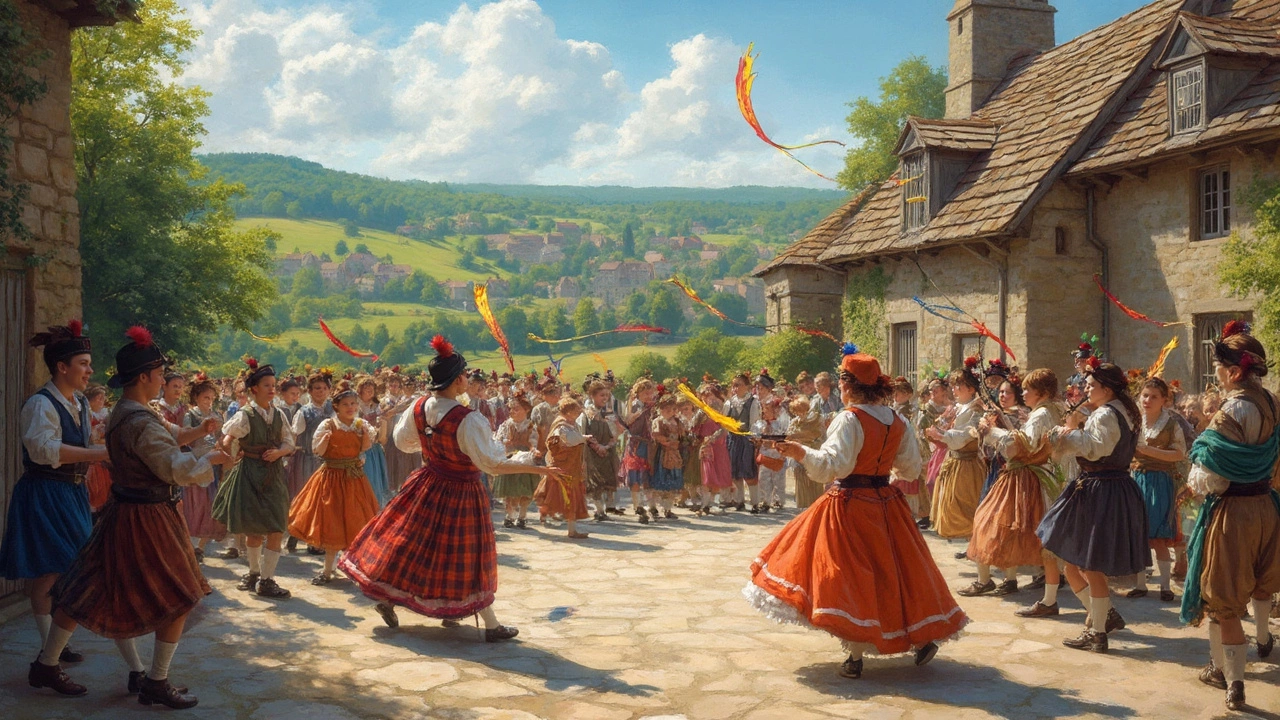
The Healing Power of Music
Believe it or not, music isn’t just for boosting your mood at a party. It’s got some serious healing chops. We're not just talking warm fuzzies—the healing power of music is backed by real science. It's been used since ancient times to soothe the mind and body. Think about the Greeks who played music to heal mental disturbances or in asylums where melodies calmed troubled souls.
Nowadays, there’s a thing called music therapy, and it's pretty legit. It’s used by therapists all over to help people with everything from anxiety and depression to dealing with chronic pain. The American Music Therapy Association says using music in this way can lower heart rates and reduce stress, even helping boost your immune system. Crazy, right?
If you're curious and want to tap into this, it’s not hard. Here’s how you can start using it:
- Create Playlists: Mix up some playlists for different vibes. Whether you need to chill out or get pumped, there’s a song for that.
- Mindful Listening: Take a few minutes each day to just sit and listen, really feel the beats and words. Let yourself drift into the music.
- Get Active: Turn exercise into a more enjoyable activity with some energizing tunes to keep you motivated.
And don’t ignore those music invention history tidbits—it’s fascinating to see how humans have always tapped into this art form to feel better. So, next time life gets overwhelming, why not try cranking up your favorite jam? You might find it’s just what you needed.
| Effect | Benefit |
|---|---|
| Reduces Anxiety | Helps calm nerves, lowering stress hormone levels. |
| Improves Mood | Releases dopamine, the feel-good chemical in your brain. |
| Pain Management | Increases overall happiness, diverting focus from pain. |
Music in Rituals and Traditions
Think about this: music has always had a seat at the table of human traditions. Ever since humans figured out they could bang on things to create rhythm, music became a key part of rituals. Imagine ancient rituals without music—it’s just not the same, right? Whether it’s a drum beat during a tribal dance or hymns in church, music's always been there, acting as the backdrop for rituals and traditions.
Take weddings, for instance. From the 'Here Comes the Bride' march to that first dance song, music punctuates each moment, tying together generations in shared experience. Let's not forget about the holidays! Who doesn’t have a playlist for Christmas, New Year's, or Eid festivities? These tunes bring a sense of nostalgia and connect people across different eras.
In some cultures, certain instruments hold a sacred place. The didgeridoo, for example, is integral to Australian Aboriginal ceremonies. In Japan, the Shinto rituals often include the haunting melodies of the koto. These aren’t just performances; they’re woven into the fabric of cultural identity, sometimes passed down for hundreds of years.
Music in rituals also works as a communal bond. Attending a rock concert or a religious service, the shared rhythm and sound fosters a sense of unity, a moment where differences fade away and everyone is part of the same tapestry.
You can also see this in more structured environments. For example, military bands still play a massive role in ceremonies, adding an emotional punch to the drill and discipline. In that sense, music doesn't just accompany rituals; it amplifies them.
So, next time you hear a familiar tune at a family gathering or spot that traditional drum at a parade, remember that these aren't just sounds. They're echoes of our collective history, keeping the rhythm going in our traditions and rituals.

Leveraging Music in Today’s World
Music has come a long way from those early tribal gatherings, yet its role remains vital. In today's world, music is more than just background noise; it's a powerful tool to enhance various aspects of our lives. From boosting productivity to improving mental well-being, music can be your go-to hack for modern living.
Ever tried working to the rhythm of a familiar tune? Studies show that listening to music while working can increase productivity, especially when the tasks at hand are repetitive. The key is to find the right genre for the job. Classical music, with its calming notes, is often favored for study sessions, whereas upbeat playlists can give you an energy lift during workouts.
On the mental health front, music offers therapeutic benefits that can soothe anxiety and ease stress. Think of it as a natural mood booster. Whether it’s the relaxing sound of ocean waves or a comforting ballad, having a playlist ready can significantly improve your emotional state.
Music is also a shining star in the world of marketing. Ever noticed how catchy jingles stick in your mind? That's not by accident. Brands leverage music’s ability to create strong emotional connections, making adverts more memorable. This is a testament to how deeply music is embedded in our culture.
- Music invention history: Understanding how music started and evolved helps us appreciate its capabilities today.
- Music origins: Knowing where music came from enhances our choices in using it effectively.
- Music impact: Observing its effects across various domains aids in utilizing music better for personal and professional life.
Whether you’re tuning in for motivation, relaxation, or even just fun, music’s versatility allows it to fit seamlessly into any part of your day. So next time you press play, remember, you’re not just listening; you’re harnessing a tool as old as time, now more accessible than ever.
